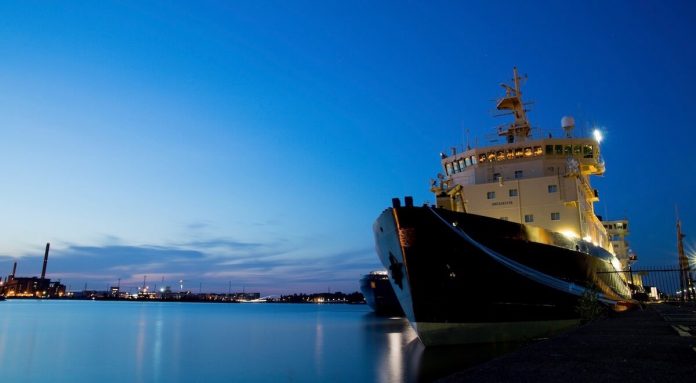This article is written by Shoronya Banerjee, from Amity University, Kolkata.
Table of Contents
Introduction
Hugo Grotius, the Dutch lawyer, was the first person to have expressed and analyzed law related to the seas and discussed the formulation of the principle regulating the freedom of the seas, in his book in Latin known as Mare Liberum in 1609. The freedom related to navigation was made available for navigation purposes for everyone. The geophysical identity of the waterbody cannot let any individual take over its ownership. But the increase of trade through the seas, over the years, undermined the concept of freedom of seas. Oceans and seas in whichever nation’s territories have particular laws related to it restricting the use of it by other States. All the oceans and seas for ages have shaped everyone’s lives along with helping in trade, growth of the economy, business, communication, and so on.
The sea for ages associated the lands and humans, but it required a rigid set of rules of national and International Law to govern the aspects and uses of the seas. The absence of a dominant central body and the coinciding of responsibilities and jurisdiction in the maritime law of India became a reason for the abuse of the legal framework governing the seas. Governmental ministries such as the Ministry of Road Transport and Highways, External Affairs, Defence, and so on regulate and manage the work and activities in maritime zones. Talking about the laws of the seas, various statutes, and legislations exist, for instance, the Maritime Zones of India Act 1981, Indian Penal Code 1860, Admiralty (Jurisdiction and Settlement of Maritime Claims) Act, 2017, and so on. But the most significant element of the framework is Article 297 of the Indian Constitution that talks about the activities within the territorial waters.
Purpose of the United Nations Convention on Law of the Sea (UNCLOS)
The United Nations Convention for the Law of the Sea, also identified as the Law of the Sea, is an international treaty, structuring and establishing rules and regulations safeguarding the usage of oceans and seas, world-wide. This convention introduced the existence of maritime zones that are the territorial sea, contiguous zone, exclusive economic zone, and continental shelf. This convention articulates state jurisdiction in maritime areas.
The water line along coastlines identified by coastal states are known as baselines. At a distance of 12 nautical miles measured from the baseline towards the sea lies the territorial sea. Territorial seas are considered within the jurisdiction of the coastal state which has complete control over it. Section 3 of the Territorial Waters, Continental Shelf, Exclusive Economic Zone and other Maritime Zones Act 1976, notifies the sovereignty of the Indian states over the respective territorial waters. Foreign ships, submarines, warships, and so on can utilize the territorial waters but only with the approval of the Central Government. Further, the distance of 24 nautical miles towards the sea, measured from the baseline is considered to be the Contiguous zone. It lies between the territorial seas and the high seas. The contiguous zone provides the state with the control and jurisdiction over the surface and floor of the ocean, but it does not include air space rights. According to Article 33 of the convention, the coastal states can take steps to punish infringement of customs, immigration protocols, etc, whose commission took place within the territory or territorial sea, concerning the contiguous zone.
The exclusive economic zone beside the territorial sea is 200 nautical miles away from the baseline. The exclusive economic zone is crucial in trade-offs related to UNCLOS. Protection of the exclusive economic zones retains the Indian maritime interests. India has an almost 2.172-million km exclusive economic zone along the 7500 km long coastline of the nation. Coastal states have the right to carry out procedures for producing energy from water and wind. They can also explore, manage, maintain, utilize, and conserve natural resources.
Right to innocent passage
The introduction of the UNCLOS had helped in the establishment of the laws of the seas. When one has to cross territorial seas without intruding into the internal waters or letting the high seas be a part of the internal waters, passage includes the stopping or crossing of such path when necessary, or in distress. UNCLOS 1982 mentions the provision of the innocent passage under its Article 19(2). The innocent passage signifies the crossing over or traveling in the territorial waters without causing harm to the security, peace, order, and so on of the coastal state. A vessel exercising the right to innocent passage shouldn’t be threatening the coastal state. A vessel carrying out the act of fishing if it does not work in conformity with the laws of the coastal state then that vessel is not entitled to the right of innocent passage.
States should not discriminate against any ships of a particular state or carrying cargoes from one state to another. A coastal state should also make the vessels aware of any threat or danger in its territorial seas. With the approval of the states, the territorial waters can be used by submarines and other underwater vehicles, but they have to show a signal on the surface of the water. The right to innocent passage can be given to foreign nuclear-powered ships or ships carrying other harmful nuclear substances if it has the necessary documents and can successfully present them if asked to present by the coastal state. Precautionary measures must be taken by the ships as per international agreement. The UNCLOS 1982 confers the right upon coastal states to make laws for preventing pollution by such vessels under its Article 211 and Art 21(1)(f). Article 22 entrusts the coastal state with the making of laws for ensuring the working of sea lanes, and the foreign ships abiding by traffic separation schemes. The convention puts forth the provision of allowing the coastal states to suspend the implementation of the right to the innocent passage, in their territorial waters.
India had accepted to abide by the U.N. Convention on the Law of the Sea, 1982. But there also exists the Territorial Waters, Continental Shelf, Exclusive Economic Zone, and other Maritime Zones Act 1976, national legislation utilized by the coastal states. Section 4(1) of this Act is synonymous with the right to an innocent passage inside the territorial sea of India. According to this Act, all foreign ships barring warships excluding water vessels like the submarines are allowed to use the territorial seas of India. But under Section 4(2) of the Act, foreign war-ships with approval from the Central Government can enter, pass, and travel in the territorial waters. The Central Government for the welfare of the nation can eliminate the right to innocent passage and cancel such a notification in the Official Gazette that would allow the passage. The right to innocent passage is utilized by Indian vessels for the facilitation of global trade.
The territorial waters and the Constitution of India
Article 297 of the constitution primarily deals with what to include with territorial waters, continental shelf, and exclusive economic zone. The constituent assembly debate on considering territory to only mean land was what formulated Article 297. The constitution-framers in uniformity with international laws decided upon territorial boundaries of coastal states and their territorial waters. This article showcases the constitution accepting the nature of the territorial waters as per the international laws, and also the territorial waters being under the control of the Union and not the Federal states. Article 297(3) also notifies that the limits of the maritime zones would be changed and adjusted according to laws made by the Parliament.
In the case of Great Eastern Shipping Company … vs. State Of Karnataka and Ors (2004), the petitioner was a public limited company owning a Tug known as “Kumari Tarini.” Under an agreement between the appellant company and the New Mangalore Port Trust (NMPT), the appellant had settled with the condition of allowing the services of the tug for works mentioned under the agreement. The second respondent in the case, the Assistant Commissioner of Commercial Taxes, in 1998 had given directions to the appellant for registering under the Karnataka Sales Tax Act, 1957 based on the services charges that the NMPT owed to the appellant requiring taxes to be paid as well Section 5C of the Act. The appellant had not accepted this claim as it hadn’t conferred the right to use the goods on the NMPT. Even after this, the respondent had notified the appellant about the last chance that would be given to him and that within 15 days, he would have to register under the Karnataka Sales Tax Act. Failure to do so would result in the respondent filing charges against the appellant for causing under Section 29(2) of the Act.
In this case, the appellant wanted to declare that the provisions of the Karnataka Sales Tax Act would not apply to the territorial waters of India situated next to the State of Karnataka. The appellant also believed that he did not need to register under the Act and pay tax in addition to the hiring charges as per the agreement between the appellant and NMPT. Article 297(3) confers upon the Parliament to decide upon the limits of the territorial water. Article 297(1) meant that every land, all minerals, and other valuable things found underneath the ocean within the maritime zones such as territorial waters or continental shelf, and the exclusive economic zone of India had to be used for the Union’s purposes. But to infer from here, the centre’s control over a thing on land would be extremely ambiguous. Therefore, this signified the lack of interest of the constitution-makers to vest the territorial waters in the Centre. Just like one state is separate from the other, similarly territorial waters adjacent to the states form a part of it. Therefore, the matter of extra-territorial waters did not play any role here. The clauses of the agreement that indicated the using rights of the tug being transferred to NMPT led to the submission of the appellant not being considered.
The Territorial Waters, Continental Shelf, Exclusive Economic Zone and other Maritime Zones Act, 1976
After the Third United Nations Convention on the Law of the Sea, held at Geneva in 1976, following this the Territorial Waters, Continental Shelf, Exclusive Economic Zones, and Maritime Zones Act, 1976 had been enacted. Under this Act, the rights over the land, minerals, and such resources found beneath the ocean, inside the territorial waters, continental shelf, and exclusive economic zones of the nation are vested in the Central Government of India. This Act focuses on India’s specific rights and jurisdiction over the maritime zones and such boundaries shared by other neighbouring countries.
According to the Section 9(1) of the Act, an agreement is required to determine the perfect maritime boundaries between India and any State with their coast just adjacent to India according to the territorial waters, contiguous zones, continental shelves, exclusive economic zones, and other maritime zones. Under Section 11 of the Act, contravention of the provisions of the Act is punishable with an imprisonment term extending to three years, or with a fine, or both.
In the case of Pride Foramer vs. Union Of India (UOI) And Ors, the petitioner, a foreign company with the main office in France and a branch office in Mumbai, the petitioner was engaged in the exploration and exploitation of oil and gas in offshore, and other related services, and works on behalf of Oil and Natural Gas Commission. The petitioner’s work in the oil rig Pride Pennsylvania situated in the exclusive economic zone as per the Maritime Zones Act. 1976. The Oil Rig carries out drilling on the ocean floors and attached to areas outside the territorial waters of India and attached to the drilling operations on the high seas. The company conducts importing of goods required in the Oil Rig. To reach the Oil Rig, the Mumbai Seaport or Airport is utilized. The respondent had stopped this transferring and shipping all the equipment, and products in the Oil Rig and would only allow it if the petitioner paid the customs duty. The company had filed this petition as it considered the respondent to be wrongfully imposing charges on the petitioner. It was held in this case that the continental shelf land and the exclusive economic zone are the parts of India under Sections 6(6) and 7(7) of the Territorial Waters, Continental Shelf, Exclusive Economic Zone, and Other Maritime Zones Act, 1976. The petitioner was not liable to utilize the benefit under Section 53 read with Section 54, and Section 86 read with Section 87 of the Customs Act. The respondent was justified in charging the duties, and this petition was, therefore, dismissed.
The Maritime Zones of India (Regulation of Fishing by Foreign Vessels) Act, 1981
One of the main reasons behind the enactment of the Maritime Zones of India (Regulation of Fishing by Foreign Vessels) Act, 1981, was to put an end to poaching activities conducted by foreign fishing vessels with the exclusive economic zone of India. It also went ahead to safeguard the resources of the Indian exclusive economic zones from Indians and foreign vessels working within the territorial waters of India without permission and license. Permits and licenses granted as per Section 4 and 5 of the Act when violated within the territorial waters of the nation, it is accompanied by a punishment of imprisonment for a term not more than three years or with fine not exceeding fifteen lakh rupees, or both. When it gets contravened within the exclusive economic zone of India, then a punishment of a fine not exceeding ten lakh rupees is implemented.
This Act specially authorizes Government officials, navy, and police to implement the provisions of this Act, specifically the power of apprehending and arresting that is vested in the local police of the coastal states. According to this Act, prior approval of the Government does not need to be taken for carrying out prosecutions of offences. The Maritime Zones of India (Regulation of Fishing by Foreign Vessels) Rules, 1982, were formulated under Section 25 of the Maritime Zones of India (Regulation of Fishing by Foreign Vessels) Act, 1981 by the Government.
Conclusion
The United Nations Convention on the Law of the Sea (UNCLOS) was created after extended debates, discussions, and meetings. It is essential, but with development, in time a void could appear in its scope and that has to be worked on by the member countries instead of ignoring it, for efficiency. India is placed at an essential position with regard to the Indian Ocean with a coastline of more than 3000 miles, the fisheries, islands, petroleum and mineral interests, custom laws, resources from international areas, and its exclusive economic zones, and so on related to the sea is immensely important for the nation. India’s trade activities over the seas can be traced back to ancient times.
The Lok Sabha on 9th December 2019 had seen the introduction of the Anti-Maritime Piracy Bill, 2019, aimed at preventing maritime privacy infringement and punishing people engaging in such crimes. The Bill put forth the definition of piracy by focussing on unreasonable acts of violence, destruction of ships, aircraft, person or property, for personal gain and purposes by the people of another private-ship or aircraft, would apply to all places with a sea adjacent to it. The offence of piracy would be treated with a life imprisonment term, or in case of involving murder then it would be a death sentence. Attempting to commit or abetting someone to commit the offence of piracy would receive an imprisonment term of 14 years, and a fine.
References
- http://psalegal.com/wp-content/uploads/2017/01/Maritime-Bulletin-Issue-II01072010113442AM.pdf
- https://www.legalbites.in/public-international-law-notes-law-of-sea/
- http://www.legalservicesindia.com/article/292/Right-to-Innocent-Passage-in-Territorial-Sea..html
- https://www.mondaq.com/india/marine-shipping/817974/ship-arrests-and-indian-maritime-law
- file:///C:/Users/acer/Downloads/03_chapter%201.pdf
LawSikho has created a telegram group for exchanging legal knowledge, referrals and various opportunities. You can click on this link and join:
 Serato DJ Crack 2025Serato DJ PRO Crack
Serato DJ Crack 2025Serato DJ PRO Crack











 Allow notifications
Allow notifications


